I Dig Sports
Mickelson could see Augusta easing its no-phone policy
Published in
Golf
Tuesday, 09 April 2019 10:28

AUGUSTA, Ga. – Depending on who you ask, it’s either the most endearing part of the Masters or its most frustrating aspect.
Anyone that sets foot on the grounds at Augusta National Golf Club this week must leave their cell phones behind, ditching technology to enter what sometimes feels like a time machine. Even the digital cameras and still photography, allowed during the early-week practice rounds, become forbidden once the opening round begins Thursday.
It can pose a burden for those consumed with the digital age who live with their phones glued to one hand or the other, but for several players it’s a welcome change as one potential variable is eliminated when the stakes are at their highest.
“Playing a practice round yesterday, I said to (caddie) Harry (Diamond) out there, ‘How good is it that people aren’t looking at their phones?’” McIlroy said. “Yes, there are people with cameras, but they don’t constantly have their face in the device. It’s refreshing.”
“It’s nice, isn’t it?” added four-time champ Tiger Woods. “This event is so different, and it’s so unique. It’s pure golf. You know, just the player and caddie out there playing. We’re prepping together and there’s no other distractions inside the ropes.”
While Augusta National has held firm on their anti-phone stance for several years, politely asking patrons to leave their devices in the parking lot while offering courtesy phone banks around the course, three-time champ Phil Mickelson could see the rules being relaxed in the not-too-distant future.
“I think when we first went to that rule years ago, allowing cell phones on the course (at PGA Tour events), I was certainly worried. But it increased the fan experience so much that I’ve kind of changed my thought on it,” Mickelson said. “I think at some point, the knowledge base of the fans here will be such where they will be able to have their phones, because they will have it on silent and it won’t affect play at all.”
Tagged under
Spieth re-watches 2015 Masters win: 'Really cool to relive'
Published in
Golf
Tuesday, 09 April 2019 10:52

AUGUSTA, Ga. – If Jordan Spieth needed any extra motivation this week at the Masters as he continues to work his way out of a slump, it came Monday night.
Spieth and a group of family and friends were waiting to watch the NCAA Tournament championship game when his father pointed out the Golf Channel was re-airing the 2015 Masters, which Spieth won.
Spieth said he and his father were playing cards and that the final round was “in the background” but that didn’t stop him from keeping tabs on the action and providing his own version of commentary.
“It was really cool to relive, especially the final [round] and it was fun to relive some of those shots and some of the putts that were holed,” he said. “I was kind of commentating to my team, the people that were around me on some of it, and it was very memorable because it was the highest of highs I've had in this sport.”
What stood out to Spieth, who won by four strokes, was the action going on around him.
“The funniest thing about watching it was like seeing how many putts were holed by like Phil [Mickelson] or a bunker shot or, putts that were holed, like Tiger [Woods] gave a big fist pump on one hole. He makes a big putt and gets to six back,” he laughed. “I'm like, wow, that's way up there. I'm really tearing that place up.”
Tagged under

AUGUSTA, Ga. – The USGA and R&A continue to tinker with the Rules of Golf, which underwent a dramatic overhaul this year.
The most recent change was announced on Tuesday, with officials offering up Local Rule G-9, allowing players to replace a club that is "broken or significantly damaged."
Under the clarification, committees that use the local rule will allow players to replace clubs that are damaged during a round.
If a club is damaged as a result of “abuse,” it still cannot be replaced. Cracks also serve as an exception to the rule, which notes that "a club face or clubhead is not 'broken or significantly damaged' solely because it is cracked."
Prior to the new local rule, players were allowed to repair but not replace a club.
Tagged under
Photo: Winners gather for Reed's hearty Masters Champions Dinner
Published in
Golf
Tuesday, 09 April 2019 15:15

Patrick Reed promised to “fatten those boys up a little” with his Champions Dinner menu on Tuesday at Augusta National, and from the looks of things, the reigning Masters champ delivered the goods.
Reed, who said he’d been planning his special menu since he was 13 years old, served bone-in cowboy ribeye for the main course along with two salad options and a collection of creamy side dishes, including macaroni and cheese and corn crème brûlée.
The Masters posted a photo on Twitter Tuesday night commemorating the annual event, with Reed featured front and center, surrounded by fellow members of one of the most exclusive clubs in all of sports.
The 2019 Champions Dinner portrait. #themasters pic.twitter.com/oyXtqRbsre
— Masters Tournament (@TheMasters) April 10, 2019
The Masters also tweeted out a mouth-watering inside look at the Champions Dinner, and a picture of the menu signed by everyone in the room:
Take an unprecedented look at preparations for the Champions Dinner. #themasters pic.twitter.com/9K8Zxv5wft
— Masters Tournament (@TheMasters) April 10, 2019
More than ink on paper, these are names written in Masters history. #themasters pic.twitter.com/LjupQc1hsh
— Masters Tournament (@TheMasters) April 10, 2019
Tagged under
Barcelona's resilience should have Man Utd worried
Published in
Soccer
Wednesday, 10 April 2019 09:03
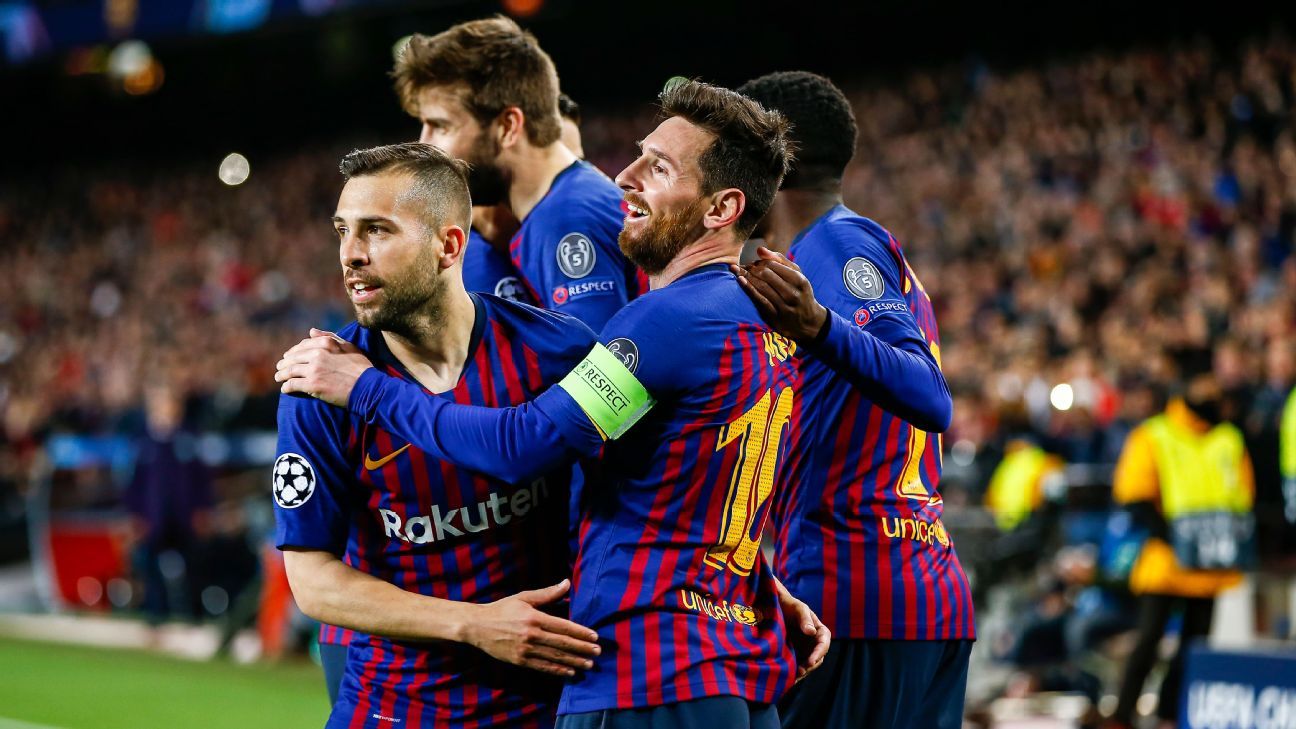
I suppose if you had to pick one man in the entire world who doesn't need any reminder of the value and impact of late goals, it'd probably be Ole Gunnar Solskjaer -- particularly a couple of days after he revisited the Camp Nou for the first time since his historic Treble-winning goal there in 1999.
For Manchester United fans, it was their all-time miracle moment, but for us neutrals in the stadium it was no less incredible.
I was working in the Camp Nou, sat a couple of rows behind Charlie Sheringham and Kasper Schmeichel, as they anxiously watched their fathers team up in the Bayern Munich penalty area after the clock had already ticked past 90 minutes. When United's talismanic Norwegian stuck out his right boot so that the ball rose steeply upward into the roof of Oliver Kahn's net, the noise, the sensation of disbelief, the professional need to steel oneself and rewrite copious newspaper copy at the speed of light -- all these emotions hit a scale somewhere between euphoria and a paralysis of incomprehension.
So while Solskjaer watched Barcelona's late show against Atletico Madrid on Saturday, I wondered whether it not only sparked fragments of memories of his own glorious past, but also a nagging worry about one of the Blaugrana's least-praised tendencies?
There's no escaping the fact that Solskjaer's United are Champions League quarterfinalists because of the added-time penalty that Marcus Rashford crashed past Gianluigi Buffon in Paris a couple of weeks ago. Like coach, like striker: much better late than never. But in Barcelona they are facing the absolute masters in this art of delayed gratification.
Let me explain. Goals scored between the 80th minute and the final whistle are a demonstration of resilience, mental and physical fortitude, are very hard to fight back against and are the touch of ruthless masters. So digest this data: In this season's Champions League, Barcelona have scored six times after the 80th minute. In fact, they haven't faced a single team in Europe this term against whom they've failed to score one of these late goals.
However, that's not all. Not by a long chalk.
When Solsjkaer -- with Mike Phelan beside him in the presidential box and Michael Carrick in an overspill area of the Camp Nou main stand -- witnessed Luis Suarez and Lionel Messi hit the net in the 85th and the 86th minutes, respectively, against Atletico he was witnessing a trend, not flukes.
Spain's champions-elect have scored in the final 10 minutes during well more than half their Liga matches since August. In some cases, like against Diego Simeone's Atleti, they have been goals that seal all three points. Occasionally, for example their midweek 4-4 draw at Villarreal, when Messi burst the net with seconds of normal time left and Suarez rammed home the equaliser moments before the final whistle blew, these late phenomena are important but don't secure the jackpot of victory. Occasionally the late show merely decorates a big scoreline.
However only once, in the 4-3 home defeat to Real Betis, has one of Barcelona's jack-in-the-box last-10-minute strikes failed to register a draw or a win. Late goals are worth their weight in gold. It's clear. And it means Ernesto Valverde's squad is very special. Across all competitions in 2018-19, they've hit the net 35 times after minute 80.
Now hold on a minute, I hear you. I hear your dismissive tone. "It's only Messi and Suarez, right? It's only the two predators hitting opponents when they're tired?"
Wrong. Of these 35 ultra-late goals, Messi has scored 11. Not a bad haul. But what I find remarkable, and important for United to plan against, is the fact that a total of 12 Barcelona players -- Messi, Suarez, Gerard Pique, Ousmane Dembele, Ivan Rakitic, Jordi Alba, Carles Alena, Clement Lenglet, Philippe Coutinho, Munir El Haddadi, Malcom and Arturo Vidal -- have carved their initials on this signature Barcelona trick.
And there's more. When considering these hard-to-bounce-back-from late strikes, we can tighten the microscope even more. The huge majority, 26 out of those 35, have been scored from the 85th minute onward into added time.
Barcelona, whether they are on top, whether they are at bay but struggling to sneak a win, or whether they are clinging on and apparently having an off night, just keep saving and saving their knockout punch. But the punch still puts rivals on the canvas.
Nor, just so that we are clear, does it only happen against lesser sides or uniquely at the Camp Nou. Finding the net late when opponents have drooped happened at Wembley against Tottenham, in Milan against Inter, at the Metropolitano for 1-1 in the 90th minute, at Sevilla, at Betis. The list goes on.
If you are a student of Barcelona, then you might be musing to yourself, "But they've been doing this for years." True. From the beginning of the Johan Cruyff era -- the 1989 UEFA Cup-Winners' Cup semifinal won thanks to Guillermo Amor's 81st-minute strike, a 2-0 goal against Real Madrid in the 1990 Copa del Rey final coming in the 90th minute, Ronald Koeman's 112th-minute Champions League winner at Wembley in 1992 -- this has been happening.
Under Frank Rijkaard in 2006: Samuel Eto'o's 89th-minute winner in the Champions League quarterfinal against Benfica, Juliano Belletti's epic final-clinching goal in Paris against Arsenal in the 80th minute. Pep Guardiola? Who will ever forget what's known here only as the "Iniestazo!" at Stamford Bridge in 2009 with a mere sliver of added time left and Chelsea on the verge of reaching their second consecutive final? Messi's 87th-minute semifinal goal at the Bernabeu in 2011?
The reason for mentioning this tendency is that while Barcelona's playing style and ideology have changed -- markedly -- from the Cruyff-Rijkaard-Guardiola days, the tendency remains.
Whenever Barcelona have been fully engaged with the Cruyff philosophy of maintaining possession, dragging opponents about, making their rivals chase after the ball, spreading the pitch positionally, it has, almost inevitably, left teams being sucker-punched late on in contests when they are mentally jaded, physically exhausted, or both. It's easy to understand: Make your enemy run, exhaust him, then strike when mind, legs and lungs are fading.
But this team doesn't play that style. Sure, they still love to take the ball and pass the ball, as Guardiola once phrased it. But they no longer have that associative style that was so based on the elite-level Xavi, the prime of Andres Iniesta and the apex of Sergio Busquets' career. This Barca team needs to run much more, play with lightning bursts forward and often has a significantly lower share of possession. Valverde's team should, in theory, be nearly as tired as their rival, if not more so, by the time the final 10 minutes are approaching. Yet, regularly, they prove that they are not.
It's a triumph of squad, changes made at the right time and impactful footballers joining a broken game. It's the product of fabulously honed technique, such that even when Valverde's players are jaded or flagging, they are slightly less likely than their opponents to actually wilt. It is, above anything else, the result of elite mentalities.
This team, which is founded on the titanium-tough will to win of Pique, Alba, Busquets, Rakitic, Suarez and Messi, simply keeps going, keeps probing, keeps believing that there's something in the match for them whether they're winning, losing, drawing, playing brilliantly or having a stinker of a night.
And the best-placed person at Old Trafford on Wednesday to recognise that wonderful resilience and confidence is -- you guessed it -- Solskjaer. Teaching his team how to prevent Barcelona from doing an Ole Gunnar to them would be a massive step toward wrecking the Camp Nou club's firm progress to their third Treble since Solskjaer, Sir Alex Ferguson, Teddy Sheringham & Co. achieved theirs nearly 20 years ago in Barcelona's stadium.
Tagged under
The inside story on United's attempts to keep De Gea
Published in
Soccer
Wednesday, 10 April 2019 09:03
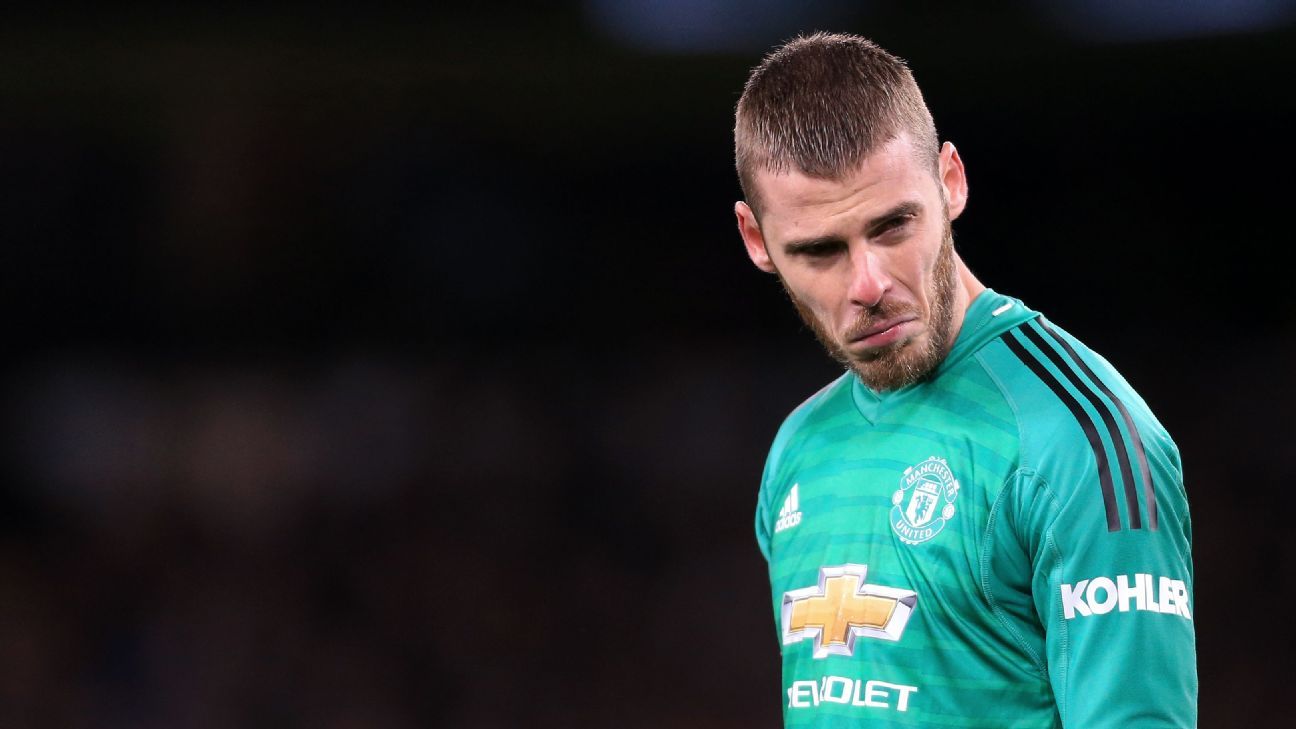
In 2015, after a summer of rumour and speculation, Manchester United accepted defeat in their attempt to get David De Gea to sign a new contract and agreed to sell the Spaniard to Real Madrid. Four years and a faulty fax machine later, and United are back where they started. In less than three months' time -- July 1, to be exact -- De Gea will officially have one year left on his deal at Old Trafford and the decision facing executive vice-chairman Ed Woodward and the Glazer family will be whether to cash in on their prized goalkeeper or hold their nerve.
Sources have told ESPN FC that their plan, as of writing, is to stand firm. Bids in the summer will be rebuffed in the hope that De Gea can be convinced to stay. Their view is that they can take the financial hit should the worst happen and he leaves for nothing in 12 months; to the club, it's worth the risk if it gives them extra time to negotiate a fresh agreement.
At the moment, though, an agreement is some way off. Sources close to De Gea have suggested the club do not have the "capacity" to meet his demands. Other sources have hinted that associated costs (including agents' fees) have driven up the price of the deal.
United are ready to pay the goalkeeper £350,000 per week over five years in a deal that would earn him more than £90 million. De Gea is asking for more and, at the moment, the gap is so wide that there is no end in sight.
De Gea and his representatives believe he deserves to be one of the highest-paid players at United. He has, after all, won the club's player of the year award in four of the past five seasons and is among the best goalkeepers in the world. At 28, he is in the prime of his career and is keen to cash in while he can. You can see his point.
United, meanwhile, are trying to manage a wage structure that has been wrecked somewhat by Alexis Sanchez's mega-money move from Arsenal in January 2018. More than that, they're also trying to cope with a shifting landscape in the transfer market. Neymar's £199m move from Barcelona to Paris Saint-Germain in 2017 blew the roof off the market in terms of transfer fees and it's taken time for wages to catch up. During negotiations with De Gea and Ander Herrera in particular, they've started to feel the pinch. After more than a year of talks, Herrera is two months away from leaving on a free transfer, with PSG linked most closely to the Spanish midfielder.
Neymar and Sanchez have set a benchmark, but United are at least learning. From now on, their top players will be offered five-year contracts with the option of a sixth rather than the four-plus-one deal De Gea signed in 2015 when his transfer to Real Madrid fell through at the last minute. Club chiefs hope it will give them more protection from situations like this happening again in the future.
It's clear that United want De Gea to stay. In August 2018, they were confident an agreement was close. Buoyed by Thibaut Courtois' move from Chelsea to Real Madrid, there was a strong belief behind the scenes that he would sign a new contract sooner rather than later. Eight months later, the word being used is no longer "confidence" but "hope."
In United's favour is a lack of other options for De Gea. Any club in the world would love the chance to sign him, but the wage packet being talked about means he will be out of reach to all but a handful of Europe's elite. He wouldn't play anywhere else in the Premier League, and Barcelona already have Marc-Andre ter Stegen.
A move to Real Madrid would allow him to move back to the city where he and girlfriend, Edurne, grew up. He has had problems with the Spanish press since becoming the national team's No.1 but the pull towards home is strong. Sources have told ESPN FC that he particularly enjoyed his incredible save from Luis Muriel's point-blank header during the Champions League last-16 first leg against Sevilla last season because his parents and sister were in the Ramon Sanchez-Pizjuan Stadium to see it.
Real have been keen in the past and have the financial clout to sign De Gea, but they would likely have to jettison Courtois, who is only 12 months into a six-year deal. It is noteworthy, though, that the Belgian's first season at the Bernabeu has not gone well and Keylor Navas has been first choice since Zinedine Zidane's return as manager.
Next in line would be PSG and Juventus in terms of realistic suitors, but even then there are people at United who doubt whether the Italian champions have the resources after splashing out on Cristiano Ronaldo.
If De Gea does leave, United are prepared. In 2015, they signed Argentina's No.1, Sergio Romero, and were ready to pull the trigger on Jasper Cillessen, then playing for Ajax and now at Barcelona. This time, scouts have spent time watching Gianluigi Donnarumma at AC Milan and Jan Oblak at Atletico Madrid. Sources have told ESPN FC that Oblak is first choice if they find themselves looking for a new goalkeeper; they believe the Slovenian is attainable even if he signs a new contract.
Neither United nor De Gea has given up hope that he could yet sign a new deal at Old Trafford. De Gea is settled in Manchester and has close friends in the dressing room in Herrera, Juan Mata and goalkeeper coach Emilio Alvarez. He was also appreciative that Ole Gunnar Solskjaer listened to his advice and retained Alvarez in the wake of Jose Mourinho's dismissal. The pair worked together at Atletico and have a good relationship away from football as well as on the training ground.
United are willing to push the boat out to keep one of the only genuine world-class players in the squad, but they will stop short of offering him Sanchez-type money to stay. The trick now is to find a middle ground but the clock is ticking.
Sources have told ESPN FC that United are braced for bids this summer that will test their resolve. They are planning to have him in their team next season whether he has signed a new contract or not, but there is also a reluctant acceptance that things can change very quickly -- just as they did on deadline day in 2015.
Tagged under
Will Rajasthan Royals make the bold calls before it's too late?
Published in
Cricket
Wednesday, 10 April 2019 06:50
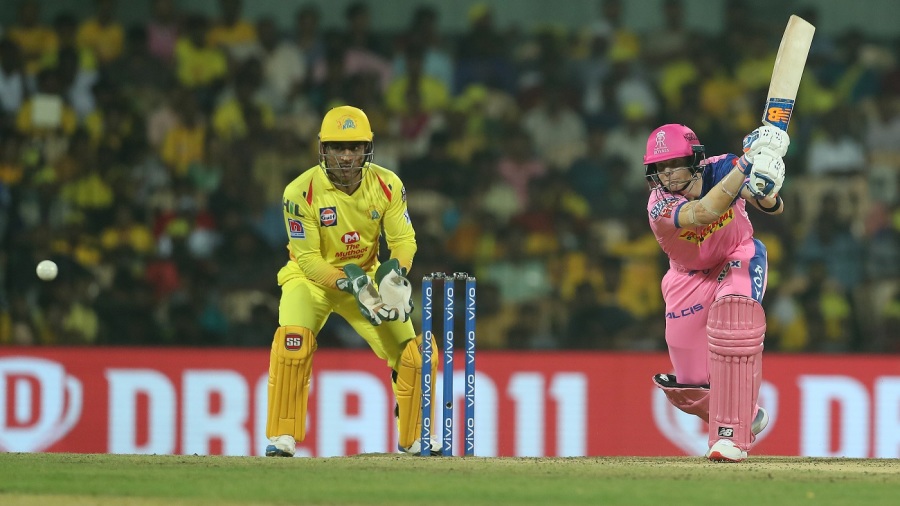
Big picture
The clock is ticking on Rajasthan Royals. Five games in, they are above only Royal Challengers Bangalore - that should tell you where they are placed on the table now. Two weeks down the road, their stars will be back to their respective countries for World Cup camps. Therefore, the onus is on them to start winning and stay alive in the competition.
For that to happen, Royals could begin by rethinking their selection. Ben Stokes has had a poor IPL season by any standards - 76 runs in five innings, four wickets, and an economy rate of 10.84. Rahul Tripathi, batting out of position in the middle order, has managed 80 runs in four innings.
Can they now find a way to replace them with Ashton Turner, who brings with him no baggage and quite a bit of middle-order muscle? How about Mahipal Lomror to do Tripathi's job, instead of a classical opener in Prashant Chopra, who featured in their previous outing? Lomror is a middle-order batsman, whose strike rotation has been a standout for Rajasthan over the last few domestic seasons. His awareness of surfaces prepared at the Sawai Mansingh Stadium could help too.
On the other side, Chennai Super Kings seem to be walking on water, cruising high and happy at the top of the table. Dwayne Bravo not there, no problem. No David Willey? No worries, mate. No Lungi Ngidi? No issues, machan. Less than six hours after hammering Kolkata Knight Riders at home, they were back at the airport for a three-hour flight. They'll just have enough time for a pool session and a short team meeting (maybe?) before they're out in the heat again.
As such, it's unlikely that a side that makes a mockery of T20 analytics and data would be concerned over Shane Watson's form and the fact that he's been out the most times of any batsman in the Powerplay this season. For all you know, he'll take a liking to the conditions on Thursday. Remember, he played eight seasons for the Royals.
Bottom line: One side yearning to get their personnel right, another hardly fretting over theirs.
In the news
Bravo is likely to sit out for another 10 days nursing his hamstring injury. There are no other injury concerns for Super Kings. Royals are waiting on Sanju Samson, who has a Grade-1 thigh strain. He missed Royals' last two games and "won't be rushed back," according to batting coach Amol Muzumdar.
Previous meeting
A vintage MS Dhoni innings - one that ended with three sixes off the last three balls - tipped Chennai Super Kings from par score to winning score. Then their bowlers clinically applied the choke on a slow Chepauk surface, overcoming a late surge from Ben Stokes and Jofra Archer, to win by eight runs.
Likely XIs
Rajasthan Royals: 1 Ajinkya Rahane (capt), 2 Jos Buttler (wk), 3 Steven Smith, 4 Prashant Chopra, 5 Ben Stokes/Ashton Turner, 6 Mahipal Lomror, 7 Shreyas Gopal, 8 Jofra Archer, 9 Varun Aaron/K Gowtham, 10 S Midhun, 11 Dhawal Kulkarni
Chennai Super Kings: 1 Shane Watson, 2 Faf du Plessis, 3 Suresh Raina, 4 Ambati Rayudu, 5 MS Dhoni (capt & wk), 6 Kedar Jadhav, 7 Ravindra Jadeja, 8 Harbhajan Singh, 9 Deepak Chahar, 10 Scott Kuggeleijn, 11 Imran Tahir
Strategy punt
Jaipur will provide some zip for the fast bowlers, but Jos Buttler's weakness against spinners can't be overlooked. His strike rate against them this season is 108.6, as compared to 146.8 against fast bowlers. Super Kings could look to bring on Harbhajan Singh and Imran Tahir to neutralise Buttler's threat. Harbhajan, in particular, has made a conscious effort to try and slow it down in the Powerplay. This season, 71% of his deliveries have been in the speed range of 70-90 kph. He's been rewarded with five wickets and an economy rate of just 5.30.
Shane Watson has the highest boundary percentage against spin this season, even higher than Andre Russell, at 86.30. The slog-sweep has been his go-to stroke against this variety of bowling. Rahane could do well to take note, and not throw the new ball to K Gowtham as he's often done this season. The offspinner has managed just a solitary wicket in five outings, conceding 8.53 an over.
Stats that matter
Dhoni is a win away from being the first IPL captain to 100 wins.
Jadeja, formerly with the Royals, is two strikes away from 100 IPL wickets.
Royals' boundary percentage of 51.01 in the first 15 overs is the lowest among all teams this season.
Watson is 31 runs short of 1000 T20 runs at the Sawai Mansingh Stadium.
Tagged under
South African board and players' body on collision course over domestic revamp plans
Published in
Cricket
Wednesday, 10 April 2019 06:06
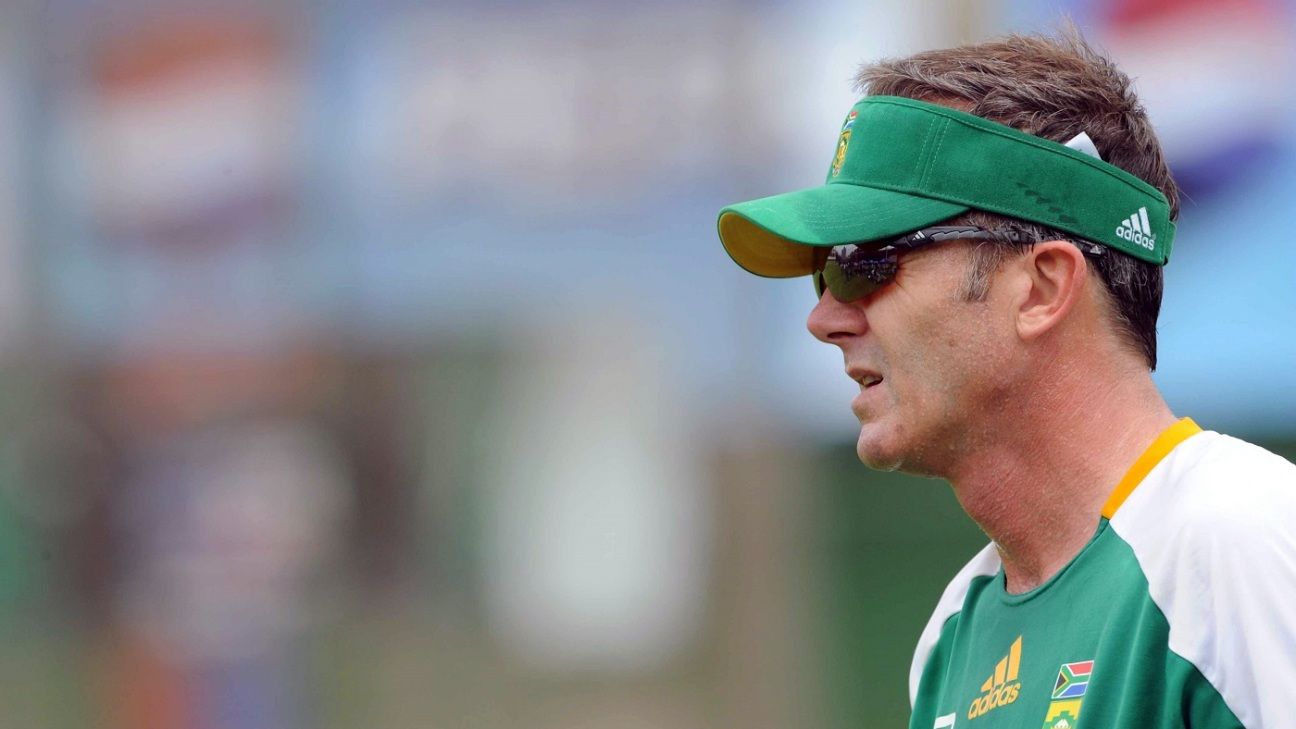
A showdown is looming between Cricket South Africa and South African Cricketers' Association (SACA). CSA held meetings over the weekend and has announced that its board has approved plans to restructure domestic cricket as a response to a dire financial situation. But SACA has complained that it has been kept in the dark on the potential changes, which could cost 70 professional cricketers their jobs.
CSA chief executive Thabang Moroe announced the planned austerity measures after two days of meetings to discuss the body's financial standing. In October, loss projections stood at R654 million [approx. USD 47 million], according to a report CSA had submitted to a parliamentary sports portfolio committee, and Moroe said that the amount had come down to R350 million [approx. USD 25 million] because of the proposed revamp.
But SACA says that it has been offered no clarity on the details of CSA's financial position, and how the challenges ahead will be dealt with.
"The future of the game is in the balance and as a critical stakeholder we believe the players have a right to know what the financial position actually is" SACA CHIEF EXECUTIVE TONY IRISH
"A four-year deficit amounting to hundreds of millions of rands is unprecedented in South African cricket and is a serious concern to us as the representative of the players," SACA chief executive Tony Irish said. "The future of the game is in the balance and as a critical stakeholder we believe the players have a right to know what the financial position actually is, how it is being dealt with, and how this is going to affect not only them but also all other cricket stakeholders.
"We have asked CSA for clarity and to date it has not provided this. SACA wishes to act responsibly and play its part in dealing with the challenge but in order to do that CSA must play open cards with us and properly engage with us."
CSA's austerity measures have been approved at the board level, and changes would include expanding the six franchise teams - Cape Cobras, Warriors, Dolphins, Knights, Highveld Lions and Titans - to 12 provincial teams from May 2020, effectively ending the existing system.
"The players' livelihoods depend on cricket's financial sustainability but this is not only about the players. It is also about the future of the entire game in our country" SACA PRESIDENT OMPHILE RAMELA
"We have a three-phased process where we will see Cricket South Africa go back to 12 provinces and we plan in the third year to either have Limpopo or Mpumalanga - or both - become part of the first-class structure, which will take us to the 14-member competition," Moroe explained.
"Franchise cricket has been a huge burden to CSA's coffers. We are pinning most of our work and commercial strategy on the Mzansi Super League (MSL) to be the programme that is actually going to fund domestic cricket."
The T20 Challenge, one of three T20 competitions run by CSA alongside the Africa T20 and MSL, will also be scrapped after operating without a sponsor this season following Ram Couriers' pullout last year.
"Obviously with us collapsing the franchise system into the senior provincial system, you will have lesser competition costs associated with the competitions," Corrie van Zyl, CSA's general manager - cricket, said. "Next year, we'll already be saving because of the termination of the T20 Challenge. From May 2020, we'll be moving to a 12-affiliate first-class structure, which enables us to have a saving."
But, Irish argued, the potential changes have been planned "without any meaningful consultation with SACA and despite the fact that this will directly affect the players". "This restructure, announced as part of cost-saving measures, is likely to lead to at least 70 players losing their contracts and many other players at franchise level having their earnings reduced. The 'human impact' of this is significant," Irish said. "SACA has a collective agreement in place with CSA, franchises and provinces, known as the MoU, which deals with these issues yet CSA has, in announcing this structure, disregarded that agreement."
SACA president Omphile Ramela explained, "SACA has formally written to CSA twice in the last six weeks to express its concerns relating to CSA's financial position. To date we haven't received any reply at all to those letters. It is critical for us as the players' association and the representative of all of South Africa's professional cricketers to know the extent of the financial challenge facing cricket and to be comfortable on how that challenge is being dealt with. The players' livelihoods depend on cricket's financial sustainability but this is not only about the players. It is also about the future of the entire game in our country."
Tagged under
'I've grown as a person since ball-tampering ban' - Cameron Bancroft
Published in
Cricket
Wednesday, 10 April 2019 08:11

Cameron Bancroft says that he is ready to put the past behind him as he prepares to lead Durham into the County Championship season, but accepts that others may take longer to forgive him for his role in the ball-tampering scandal that rocked Australian cricket last year.
Bancroft, 26, was last month named as Durham's captain for the 2019 season - a surprise appointment from the club's new director of cricket, Marcus North. However, it is an honour that the player himself is eager to live up to, after claiming to have grown as a person in the course of his enforced absence from the game.
"Of course I haven't had a lot of experience at first-class level captaining but I think all captains, all leaders, at some point in their lives started off captaining zero games of cricket," Bancroft said. "That's where I'm at right now and I'm just looking forward to learning about my team-mates, to being a part of the Durham County Cricket Club.
"They're a team that have had a few changes to the squad over the last 12 months and I know they're all really excited and looking forward to the future and I look forward to sharing and being a part of that."
Images of Bancroft flashed around the world in March last year when, midway through the Cape Town Test against South Africa, he was caught using sandpaper to rough up the match ball, and even attempted to hide the evidence by stuffing the object down his trousers.
It led to a nine-month ban from the sport for Bancroft, and 12-month bans for his senior colleagues, David Warner, who was deemed to have hatched the plan, and Steve Smith, who as captain was responsible for his team's on-field behaviour.
Bancroft said he "one hundred percent" hoped to return to the Australian Test team alongside Smith and Warner.
"It would mean a lot to me, definitely," Bancroft said. "But I also know that I've got a lot of really great things in my life and even playing just club cricket back home in Perth, it's a game that I felt like, you get really self-absorbed and single-minded in your pursuits to achieve things.
"But I think at the forefront is just the enjoyment of it all and if I do that I know that the result will take care of itself and it might not be. Hopefully that will happen one day."
Bancroft admitted, however, that he had contemplated walking away from cricket.
"I've had moments where I've been really flat, really down," he said. "You're in a grieving phase, and you've got to be really honest with yourselves. Particularly as men you can sometimes really hold onto things, can't you? So being able to express that to my family and I've had a really great sports psychologist back home. To be able to honour that within yourself is really important.
"Walking home one day to where I was staying I had a thought that perhaps cricket wasn't going to be for me ... but once I started playing grade cricket for my club, I had so much fun."
The ban was, he reflects, an unexpectedly positive experience, in spite of the turmoil it caused at the time. Bancroft immersed himself in yoga, to "detach myself from the story of being a professional cricketer", and got involved with volunteer projects, including a camping exhibition with the Kyle Andrews Foundation, which cares for sick and terminally ill children.
"As much as I missed cricket, the opportunity it gave me to look at myself was one of the best things that ever happened to me," he said. "I had to go home. Sit with myself, grieve, forgive myself, and then ultimately move forward.
"I've learned a lot about myself, I think being able to take time to detach myself from cricket was something that I found a lot of joy in. To know that the identity and person I created from being a professional cricketer, a game which I love, I think I was just able to connect a lot with different parts of the community, meet a lot of great people.
"Turning that event from South Africa into a positive was something I was really proud of and to have that opportunity to grow as a person, you'd be silly not to take those steps forward.''
Tagged under
Stand-in captain Kieron Pollard elects to bowl, Siddhesh Lad debuts for Mumbai Indians
Published in
Cricket
Wednesday, 10 April 2019 07:35
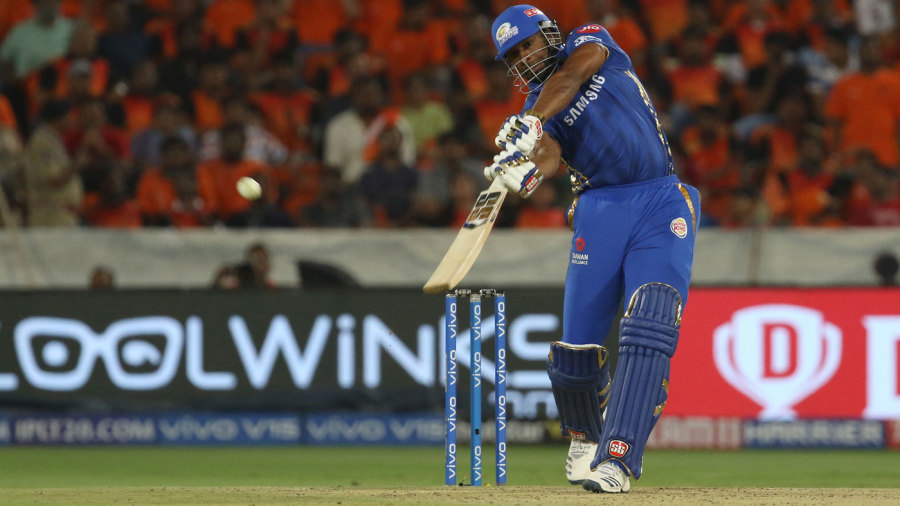
Toss Mumbai Indians chose to bowl v Kings XI Punjab
Kieron Pollard showed up for Mumbai Indians at the toss, filling in for the rested Rohit Sharma, and he elected to bowl against Kings XI Punjab at the Wankhede stadium. Visiting captain R Ashwin said he would have done the same, keeping the dew factor in mind, had he won the toss.
Rohit, who had suffered a muscle spasm in his right leg yesterday during training, was rested as a precautionary measure. Mumbai have handed a debut to local boy Siddhesh Lad, who has been with the team since 2015.
For Kings XI, Karun Nair replaced Mayank Agarwal, who is yet to recover from his finger injury, according to Ashwin. Fast bowler Hardus Viljoen, who played the first three games for Kings XI, is back in place of Mujeeb Ur Rahman.
Having lost their previous match against Kings XI earlier this season, Mumbai, while also looking to improve their patchy home record, will be hoping to turn it around at the Wankhede.
Both teams are coming into the game having defeated Sunrisers Hyderabad in their respective previous encounters.
Mumbai Indians: 1 Quinton de Kock (wk), 2 Suryakumar Yadav, 3 Siddhesh Lad, 4 Krunal Pandya, 5 Ishan Kishan, 6 Hardik Pandya, 7 Kieron Pollard (capt), 8 Rahul Chahar, 9 Alzarri Joseph, 10 Jason Behrendorff, 11 Jasprit Bumrah
Kings XI Punjab: 1 Chris Gayle, 2 KL Rahul (wk), 3 Karun Nair, 4 Mandeep Singh, 5 Sarfaraz Khan, 6 David Miller, 7 Sam Curran, 8 R Ashwin (capt), 9 Hardus Viljoen, 10 Ankit Rajpoot, 11 Mohammed Shami
Tagged under












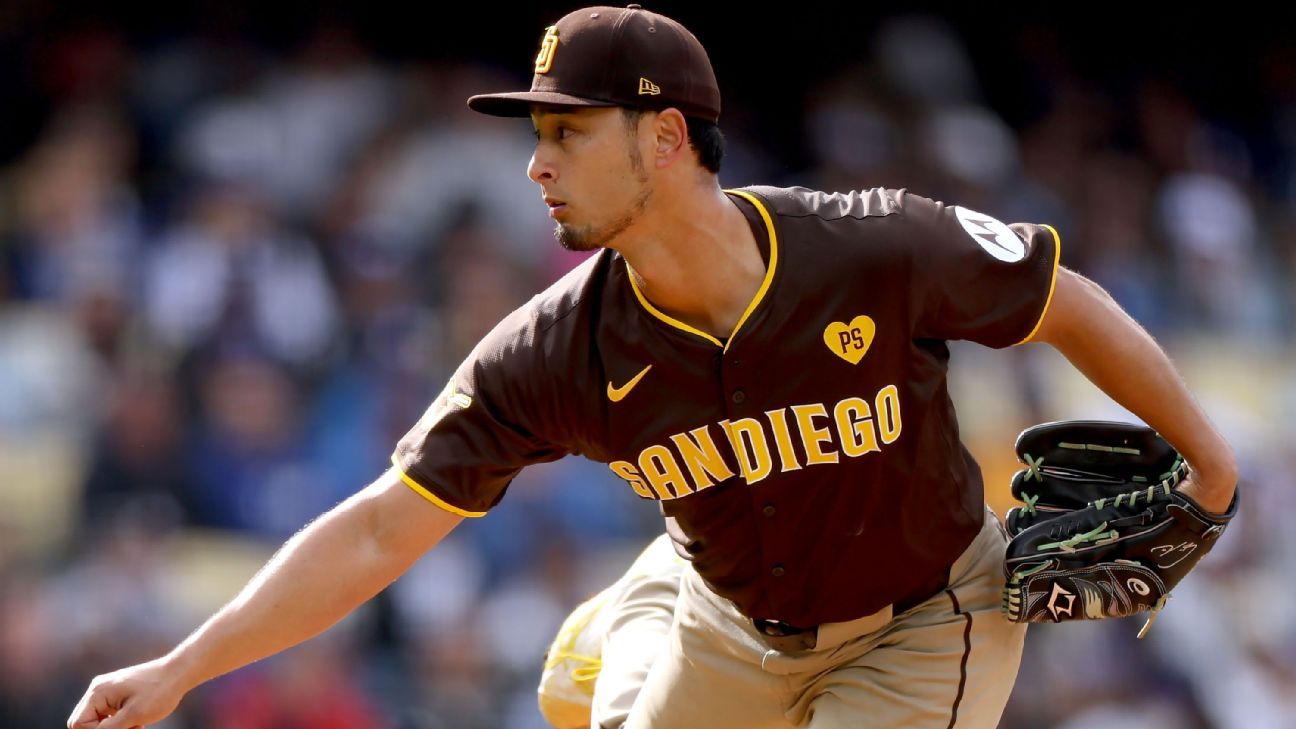


 Phone: (800) 737. 6040
Phone: (800) 737. 6040 Fax: (800) 825 5558
Fax: (800) 825 5558 Website:
Website:  Email:
Email: 






